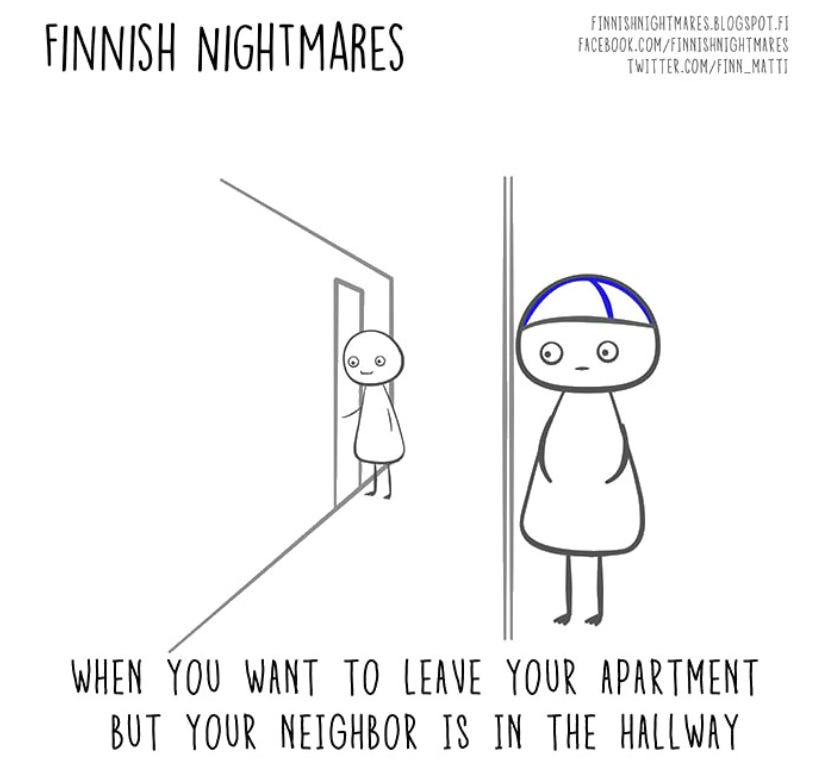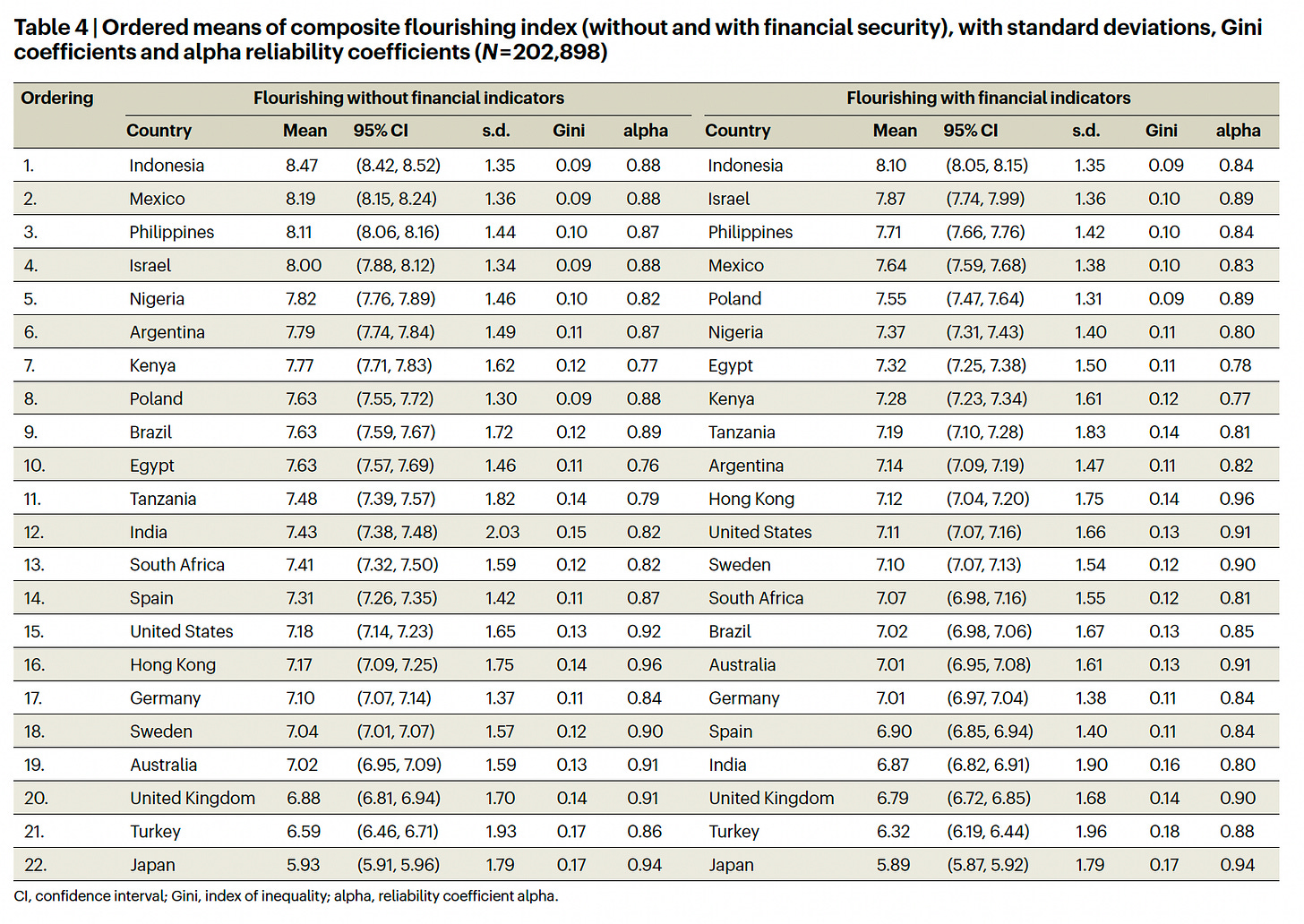Are Indonesians the world's most flourishing people?
A new study finds Third Worlders back home in their native lands tend to be happier than the populations of immigration-destination countries like the US and UK.
From the New York Times opinion page:
The Happiest Country in the World Isn’t What You Think
April 30, 2025
By Byron Johnson, Tyler J. VanderWeele, and Brendan Case
Dr. Johnson and Dr. VanderWeele are social scientists who are directing a five-year research project about global human well-being on which Dr. Case is collaborating.
According to the 2025 World Happiness Report, which was released last month, the happiest country in the world is Finland, trailed closely by Denmark, Iceland and Sweden.
Here’s the map from the latest World Happiness Report, with darker being better:
Here’s the top 20:
Here’s the bottom 20:
After all, at least some people seemed pretty unhappy about living in Afghanistan:
Still, are Finns really the happiest people on Earth? They seem kind of serious, even glum, at least when sober. The website Finnish Nightmares documents the difficulties of being a Finnish-class introvert:
Paywall here:
The Finns have done a wonderful job of making their difficult northern land one of the best countries in the world, but do they fully enjoy their accomplishment? Or are they always worried, deep down inside, that if they don’t take even more pains that they will starve to death before winter is finally over?
This news came as no surprise. The report, released annually since 2012 by a consortium of groups including Gallup, often features these four Nordic nations — all of them stable democracies with prosperous and healthy citizens — at or near the top of its list. At the bottom (out of 147 countries assessed) was Afghanistan, then Sierra Leone, Lebanon and Malawi.
These rankings reinforce a key supposition of our globalized political and economic order: Poor countries are unhappy because they are poor, and wealth is a critical precondition for individual and societal flourishing.
It helps.
The International Monetary Fund encourages trade and economic growth on the theory that happiness increases with material prosperity. Political thinkers such as Francis Fukuyama and Steven Pinker talk about wanting to help poor and turbulent nations “get to Denmark.”
But there are reasons for suspecting that the World Happiness Report rankings — and the model of international development which they are often taken to justify — do not capture the fullness of well-being. Respondents are asked a single question: to imagine an 11-rung ladder whose top and bottom are the best and worst possible lives, and to place their life on one of the rungs. This metric, known as life evaluation, can be a useful piece of information, but happiness is almost certainly a more complex phenomenon. You might be sick but still have a strong sense that life is meaningful, or be financially insecure but still have close relationships with family members and friends.
There is also evidence that when people offer their life evaluation score, the framing of the question can prompt them to fixate on wealth and status over other aspects of well-being. That risks stacking the deck: If life evaluation is, in effect, another way of measuring economic prosperity, it is neither surprising nor illuminating that the rankings of the World Happiness Report loosely correlate with gross domestic product.
The three of us conceive of happiness — or flourishing — more broadly: as a state of affairs in which all aspects of your life are relatively good, including the social environments in which you live. If we were to examine not just life evaluation but also relationships with family members and friends, community and political participation, health, prevailing emotions, a sense of life’s purpose, feelings of financial security and so on, we could better understand what it means to live a good life and how governments and international institutions can help make people happier.
So here’s their new Global Flourishing Report, which so far focuses on 22 countries from here and there around the world.
Counting financial indicators, the most flourishing population on Earth is said to be … Indonesia’s.
Indonesia is probably the most obscure huge country (281 million people). So I don’t know much about Indonesians. One reason is because Indonesians seem to be homebodies, so there aren’t a lot of Indonesian-Americans (the Van Halens are a rare example). I guess Indonesians must like Indonesia because they don’t leave much. Then again, it’s a vast place with more islands than you could visit in a lifetime, so maybe Indonesians with wanderlust just move a thousand miles, much like Americans seldom move out of the USA.
Israel is #2, but then again, there are a lot of Israelis in my neighborhood.
And there are lots of #3 Filipinos in the U.S., but even more back home (115 million). I can recall the late Pope Francis having a moment of doubt about his Catholic opposition to birth control on his way back home from a visit to Manila.
And there are 37 million people of Mexican descent in the United States, despite #4 Mexico ranking well ahead of the USA in “flourishing.”
#5 Poland of course became famous for all the Polish plumbers who left for England when Poland got into the EU. (But some are going home as Poland booms economically.)
#6 Nigeria seems like a radically underachieving state, even compared to neighbors like Ghana. Lots of Nigerians move to Britain and increasing numbers to the US.
#7 Egypt is lacking in golf courses for my taste:
But some people must find Cairo’s incessant racket reassuring.
Baroness Karen Blixen liked #8 Kenya:
When I was a kid in the 1960s, #9 Tanzania, then Tanganyika, was huge with children because of all the safari animals. I can recall shaking hands with Judy the Chimp who starred in Daktari on CBS:
I don’t hear much about Tanzania anymore.
(Note that they didn’t do their survey in currently disastrous countries like Haiti and Afghanistan.)
The US is #12, in the middle of this list, just ahead of Sweden. White countries tend to be toward the bottom (e.g., UK trails India), with the Japanese as the least flourishing people among the 22 countries.
Do I believe this?
Eh …
It sounds perhaps like semi-random fluctuations in how to respond to personal big picture questions. In contrast, the older survey where Finland usually wins seems to be more of a test of “Do I have a good excuse for being unhappy?” I can imagine Finns getting even unhappier when they ponder that question.
So, I dunno …
But this survey is interesting from the perspective of immigration policy. The common liberal unspoken assumption is that of course nonwhites can’t organize their own decent countries, so they morally must be allowed to immigrate en masse to white countries.
Oh, the humanity!
But, a lot of people around the world rather like their home countries and would have reasonably happy lives at home.











I knew a Finn. He said that an extroverted Finn stared at somebody else's shoes.
So it sounds as if the US receives the people who dislike their countries. But why during protests they wave their home flags?